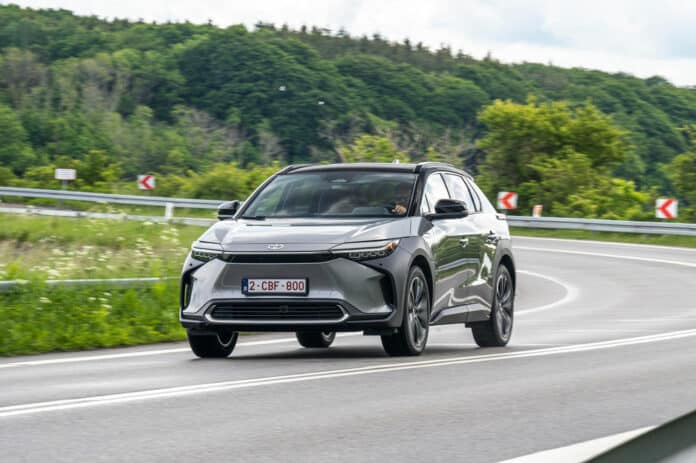Japan-based automobile manufacturer Toyota has recently announced that it will begin producing its next-generation battery electric vehicles (BEVs) in 2026.
The company has revealed that its new BEVs will not only be built and designed differently from the previous models but will also be powered by various innovative, state-of-the-art batteries designed to meet the diverse demands and expectations of Toyota customers.
“We will need various options for batteries, just like we have different variations of engines. It is important to offer battery solutions compatible with a variety of models and customer needs,” said Takero Kato, president of Toyota’s BEV Factory.
He also highlighted that the range of battery technologies will be important for BEVs to meet a wide range of customers and their needs.
Toyota has unveiled four next-generation batteries incorporating the latest advances in battery technology, including liquid and solid electrolytes. These come in four categories: performance, popularized, high performance, and solid-state batteries.
A Performance Li-ion battery combined with improved aerodynamics and reduced vehicle weight will extend the BEV’s cruising range to over 800 km (497 miles). A 20% cost reduction is expected compared to the current bZ4X BEV. It will also have an instant recharge within 20 minutes. It is intended to be introduced with the next-generation BEV in 2026.
Popularisation battery is built using bipolar technology that Toyota integrated and confirmed with its NiMh hybrid electric vehicle battery, with cheap lithium iron phosphate (LiFePO) as the primary material.
The Popularization Battery is expected to offer a 20% increase in cruising range and a 40% reduction in cost compared to the bZ4X. Its recharging time is within 30 minutes. They are also expected to be introduced in 2026-2027.
Toyota is also developing a High-Performance battery that combines a bipolar structure with Li-ion chemistry and a high nickel cathode to achieve further advances and increase the cruising range capability to more than 1000 km (621 miles) in combination with improved aerodynamics and reduced vehicle weight.
A further 10% cost reduction of high-performance batteries and faster charging times of less than or equal to 20 minutes are also expected compared to performance batteries. Moreover, it is expected to be introduced in 2027-2028.
Finally, the solid electrolyte in Toyota’s solid-state batteries will enable faster ion movement and improved tolerance to high voltages and temperatures. These qualities make solid-state batteries suitable for rapid charging and discharging and provide more power in a smaller form factor. This allows for fast charging in 10 minutes and a 20% increase in cruising range to around 1000 km (621 miles).
The president of Toyota BEV factory, Takero Kato, indicated that the next-generation BEVs will first hit the market in 2026.
